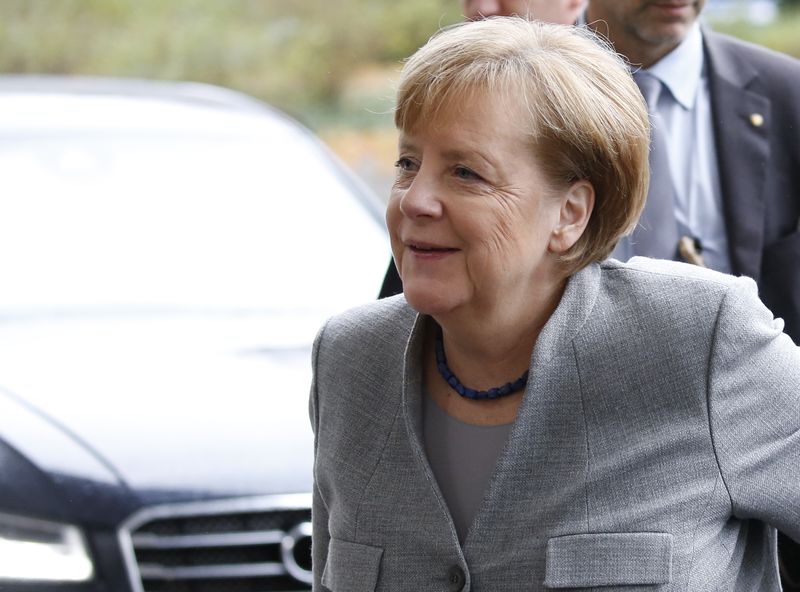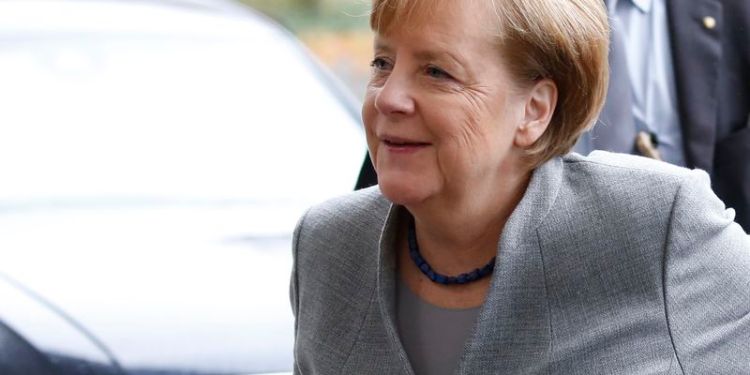 © Reuters. Exploratory talks about forming a new coalition government in Berlin
© Reuters. Exploratory talks about forming a new coalition government in BerlinBy Markus Wacket and Andreas Rinke
BERLIN (Reuters) – Germany’s would-be coalition partners appeared to be stalled over the thorny issue of immigration policy on Sunday despite inching closer to agreement on other major sticking points including climate policy.
An awkward alliance with the pro-business Free Democrats and the Greens would allow Chancellor Angela Merkel to govern for a fourth term after her conservatives lost votes in September’s election to the far right.
However the three-way combination is untested at national level. With negotiations running deep into overtime, leaders are urging each other to make painful compromises in order to bind parties that are ideologically far apart into a stable government for Europe’s largest economy.
A self-imposed deadline of Thursday for wrapping up exploratory talks passed without agreement, but negotiators said the Greens welcomed a Sunday offer to boost wind generation and shutter 7 gigawatts of dirty coal generation capacity.
“(Parties) cannot go in with maximal demands,” said Greens co-leader Cem Ozdemir. “They have to be prepared, out of responsibility, or call it patriotism, to move – and we have done that in every area, right up to the pain threshold.”
While snags remain on taxes and public finances, the trickiest sticking point concerns immigration, where Merkel’s arch-conservative allies in Bavaria’s Christian Social Union (CSU) insist on capping new arrivals at 200,000 a year.
The left-leaning Greens have opposed a cap, but appeared willing to compromise in a document seen by Reuters late on Saturday, in which they said that the proposed limit had only been exceeded five times in the past 25 years.
Failure to reach a deal could lead to new elections, something all the parties are anxious to avoid as they fear this could lead to the far-right Alternative for Germany (AfD) making further gains after surging into parliament in September.
Talks are scheduled to conclude at 1700 GMT, but CSU head Horst Seehofer said he expected discussions to run slightly longer. “We have to decide today,” he said as he arrived, demanding a “humane and ordered” immigration policy.
The CSU is allied to Merkel’s Christian Democrats. It has been in power for 60 years in the south-eastern state of Bavaria, which was the main entry point for the million mainly Middle Eastern refugees that flooded into Germany in 2015, upending Germany’s demographic landscape overnight.
With the AfD running a close second in some districts, the CSU fears it will lose its perch as Bavaria’s natural party of government in next year’s regional elections if it fails to secure a migration cap.
Fusion Media or anyone involved with Fusion Media will not accept any liability for loss or damage as a result of reliance on the information including data, quotes, charts and buy/sell signals contained within this website. Please be fully informed regarding the risks and costs associated with trading the financial markets, it is one of the riskiest investment forms possible.
Source: Investing.com






















